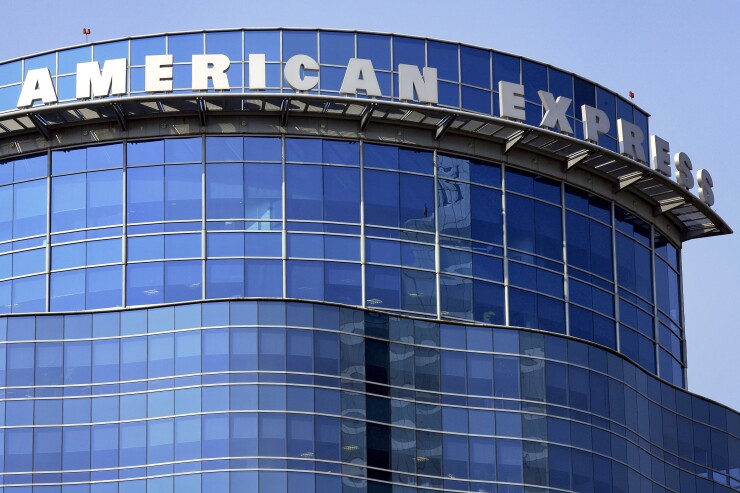Want unlimited access to top ideas and insights?
American Express responded to the stresses from the decline in cobrand business with record ad spending and a focus on digital delivery to lure new customers and expand relationships with existing accounts.
It appears as though that strategy is starting to pay off, as Amex attracted 2.6 million new cardholders in the first quarter of 2017, with 60% of these new accounts coming through digital channels, the company reported April 19.
"Digital has become an important strategy for acquisition of new card members, particularly the millennial customers," said Jeff Campbell, executive vice president and chief financial officer during American Express' first quarter earnings conference call.

American Express has focused on Internet of Things technology, participating in
"We talk a lot about the nature of our closed loop network, which allows us to be adept at working in the social media field. We have been at the forefront of bringing digital, social and payments together," Campbell said, noting partnerships with companies such as Airbnb, Twitter and Facebook to appeal to mobile-savvy and younger consumers. "We are looking to build lasting relationships, not just the 'next thing' for six months."
The moves followed the hit Amex suffered following the lost of
For the quarter ending March 31,
Rewards expense increased 6%, Amex reported. The company is trying to rein in that expense through
"I would expect see rewards cost go up over the next couple of quarters, but it's mostly [Platinum cards]. We are encouraged with the trend that we have seen in business metrics over the past few quarters," Campbell said, affirming the company's overall financial outlook for the rest of the year.





